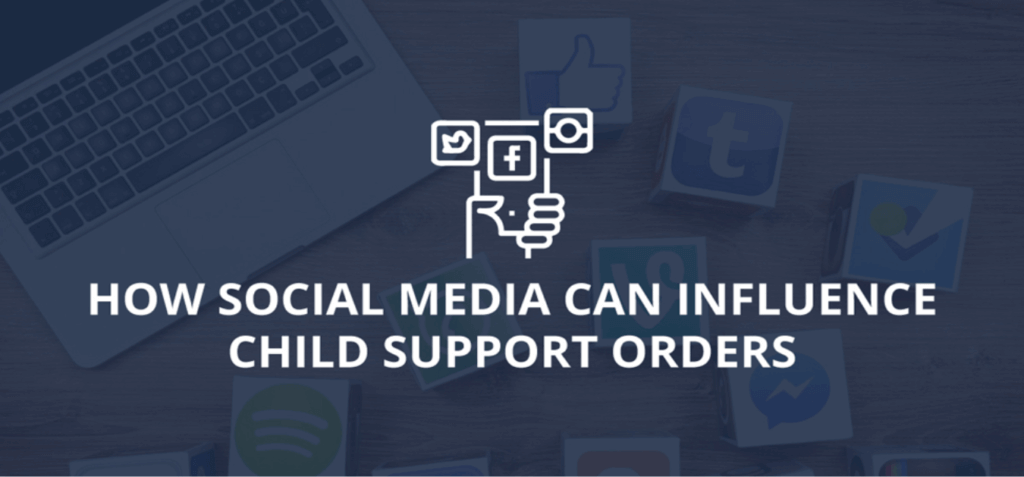4 Ways Social Media Can Influence Child Support

Whether you and your spouse are divorcing, or you were never married, one of you may be required to pay child support to the other. You and your child’s other parent can agree to a certain amount of support, or the judge will determine who should pay child support and how much.
When the child support decision is left up to the judge, they will utilize Massachusetts’ most recently updated Child Support Guidelines. Though judges receive plenty of guidance in making this decision, there is still a great deal of discretion, especially regarding parents with higher incomes.
Social media evidence may be relevant when a judge is considering who should pay child support and how much. There are several ways in which a parent or child’s social media content can impact custody and support.
To learn more about how you can use social media as evidence in a child support case, contact our Boston divorce & family law attorneys at Infinity Law Group.
Social Media Can Contradict a Parent’s Financial Claims
When a parent may be made to pay child support, that parent might try to look like they have a lower income than they really do. They may try to get paid under the table or hide tips. They may try to hide secondary sources of income or valuable assets.
However, social media content may suggest the parent is living a better lifestyle than would be possible given the financial information they gave the court. If you see your child’s other parent posting about expensive purchases, lavish vacations, or routinely eating out and partying, talk with an experienced Boston divorce lawyer.
Evidence of extravagant or unnecessary purchases is not a guarantee that the parent’s income information is inaccurate. It may be that other parties are paying for the purchases. It also could be that the parent is going into debt to finance their lifestyle.
However, social media content can steer you and your attorney toward a more thorough investigation of the parent’s income. This investigation could uncover a higher income than the parent reported to the court, which would impact the judge’s child support calculations.
Social Media Can Impact Parenting Time
An indirect way social media can impact child support is by influencing the amount of parenting time the judge grants each parent.
Parents are adults who are entitled to have social lives. They get to go out with friends, drink alcohol, and overall have a good time. However, social media content may show a parent using illegal drugs, struggling with alcoholism, or dealing with substance abuse or addiction. There may be content that suggests drunk driving.
Social media also may show a parent out partying or being involved in other plans when they are supposed to be with their children. That parent may have made an excuse as to why they could not be with their children during their scheduled time. Or, the other parent may have no idea who was taking care of their children while that parent went out.
These issues may influence a judge to limit how much time that parent has with their child, giving the other parent a greater amount of parenting time and responsibility.
The MA Child Support Guidelines assume a child spends about two-thirds of their time with their custodial parent and about one-third of their time with the non-custodial parent. However, if the child spends less than one-third of their time with the non-custodial parent, that parent may be required to pay the custodial parent a greater sum of support.
Social Media Can Demonstrate Custody Issues
Child support is dependent on where the child spends most of their time. Typically, the non-custodial or non-residential parent pays support to the custodial or residential parent who has the child a majority of the time. If that changes, then support may need to be recalculated.
A parent may claim their child lives with them. However, social media may show the child lives with another family member. A parent may claim the other parent does not spend quality time with their child despite being allowed to do so. Social media may paint a different picture.
Based on social media content, a judge may be able to see that claims of where the child is living and the relationship each parent has with the child are inaccurate.
And bear in mind, it is not only the parents’ social media profiles that matter. A parent may submit content from the child’s social media as well.
Is the Other Parent Not Paying Court-Ordered Child Support?
Social media also can be helpful if you are dealing with a parent who refuses to pay child support. In rare cases, a parent can go to great lengths to avoid paying support, including refusing to tell the other parent where they live or work.
When you are having trouble locating a parent or determining their source of income, social media can be helpful. Tagged locations and photos can offer clues, help you locate the parent, and enable you to pursue child support enforcement.
Call Our Boston Divorce & Family Law Attorneys For Help Today
If you believe the other parent’s social media content is relevant to your current child custody or support matter, talk with Infinity Law Group right away. You can contact us through our online form or call (617) 250-8236.
We offer free phone consultations at our Boston, Quincy, and Needham, MA offices.
 Infinity Law Group LLC
Infinity Law Group LLC





